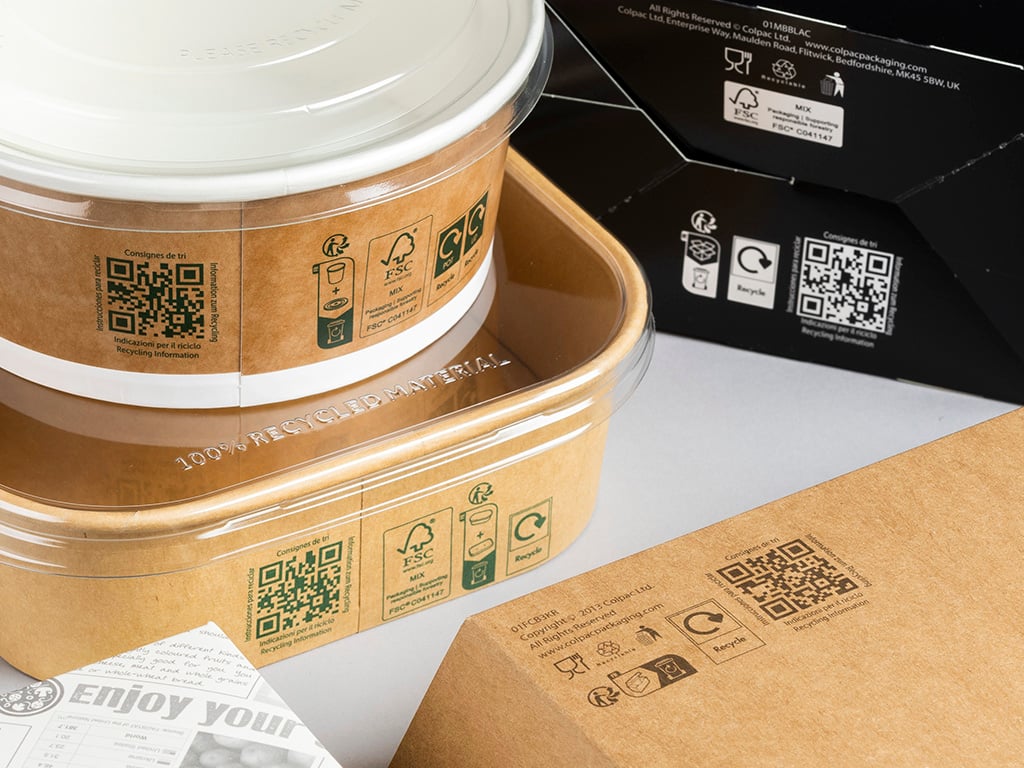
Product Sustainability
Our commitment to product sustainability is demonstrated across several key areas.

Considered Design
Designing for End-of-Life
We design with end-of-life waste streams in mind. We follow circular design principles to maximise our contribution to reduce and recycle and get the most out of the materials we use. We work closely with the UK waste industry and testing houses to develop our products so they can be recycled and/or composted.
Design Flexibility
With design and manufacturing under one roof, we offer adaptable product design, in line with rapidly changing legislation across our international markets. We adjust the weight, shape, and taper of products, and optimise case configurations and pallet fills, to increase space efficiency.
Reducing Hard to Recycle Materials
We constantly develop new and existing products to reduce and replace materials to improve recyclability. We also use recycled and recovered materials to help conserve natural resources.

Sustainable Sourcing
We drive sustainability and responsibility throughout our supply chain through rigorous supplier selection, regular auditing, and adherence to our Supplier Code of Conduct.
We strongly advocate sustainably sourced materials, and all our board comes from suppliers compliant with the UK/EU Timber Regulation. Look out for our FSC® and PEFC materials across our stock ranges. We also encourage the use of these materials in our bespoke food packaging solutions.
New Materials
Our pioneering ethos, alongside agile manufacturing, makes Colpac a hub for innovation.
We actively search out new materials to test and we work with companies to expedite material development to improve functional performance and product sustainability. An example is our ZestTM range which has a water-based coating to provide an improved barrier.

Reducing Food Waste
Food Preservation
Lots of our packaging solutions extend the shelf-life of food contents. Enhancing shelf-life and preserving food means more time to sell and consume food, reducing food waste.
Heat Seal Packaging
Heat seal packaging reduces air flow to food product, extending shelf-life to 2 days and beyond, dependent on contents. Even a short extension of 1 day can significantly reduce food waste.
Modified Atmosphere Packaging (M.A.P.)
Food waste is one of the biggest contributors to greenhouse gas emissions. Modified Atmosphere Packaging (M.A.P.) solutions can extend shelf-life over 10 days to reduce this*. M.A.P. replaces air with a protective gas mix, that can extend shelf-life, allowing longer distribution journeys and increased selling time.

Reducing Packaging Impact
Recycling Our Products
We choose our materials to fit with recycling processes. The recyclability of our products is shown in line with 2023 OPRL guidelines, and we support the differing legislations across the world, publishing available details for other countries. We also advocate the use of recycled materials in our board, film, and lids wherever possible.
Composting Our Products
We pioneered compostable food packaging in the 1990s and many of our products can be composted in line with EN13432.
We partner with providers offering composting machinery to help our customers to set up on-site closed-loop waste management systems.